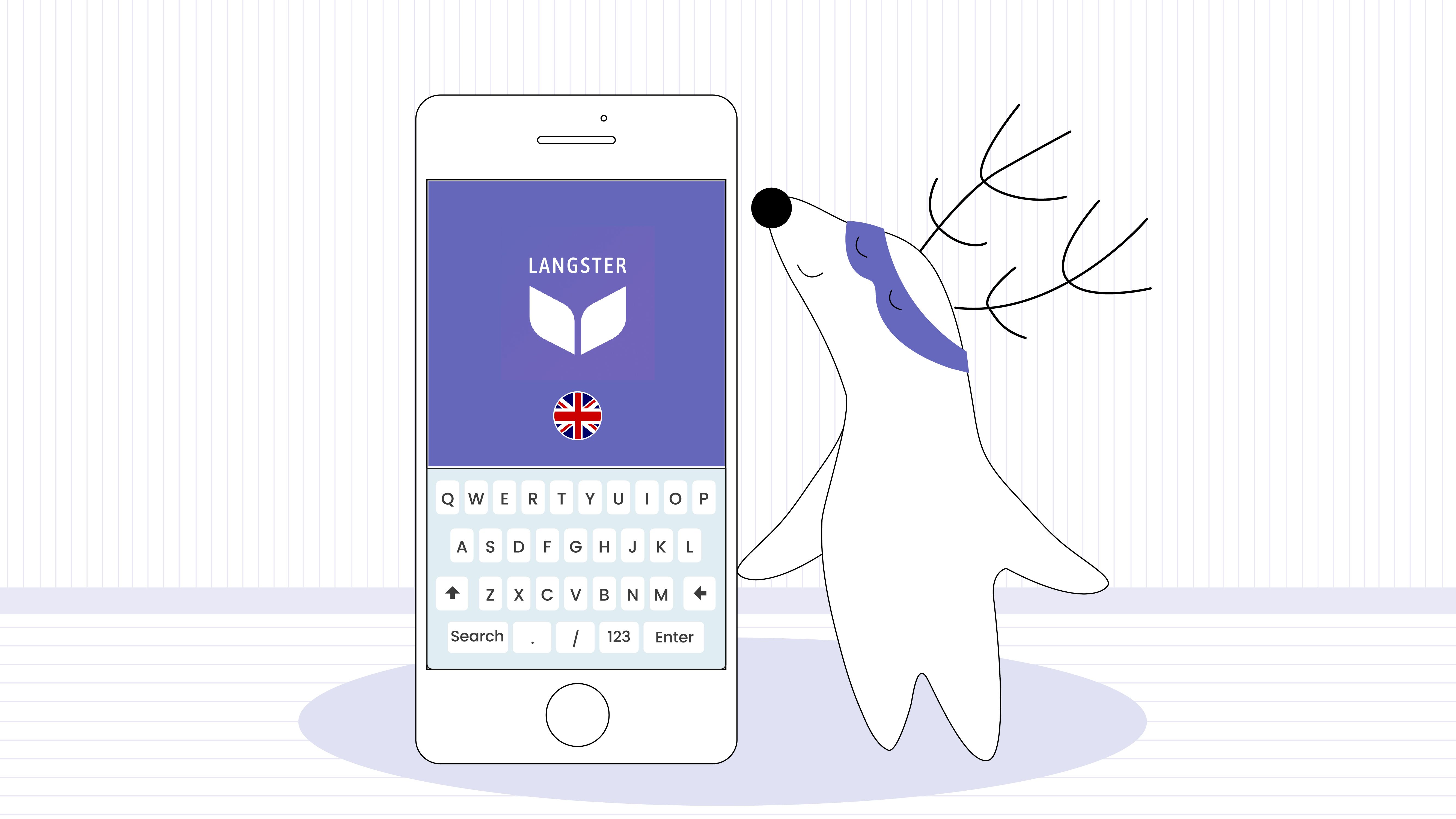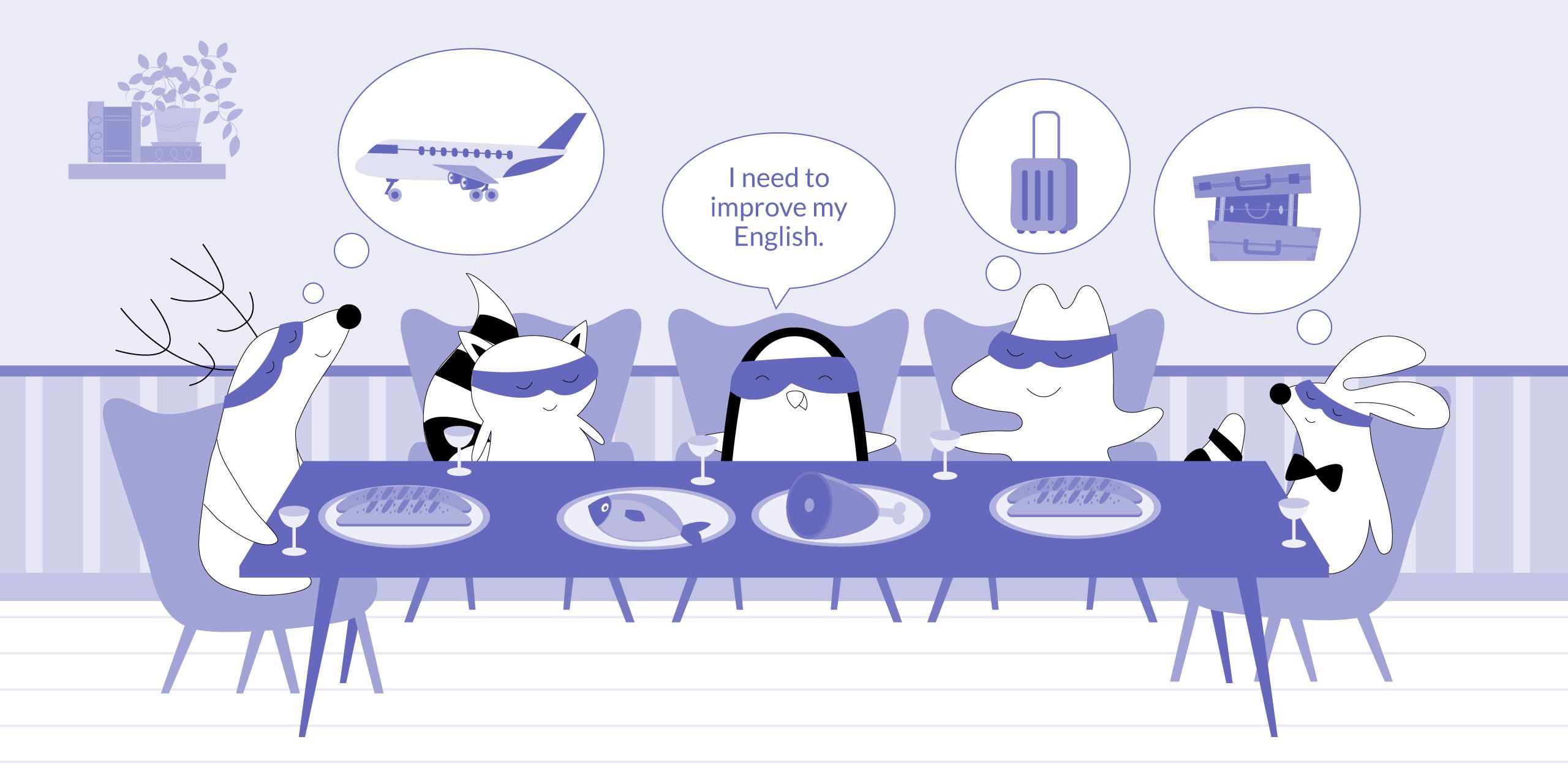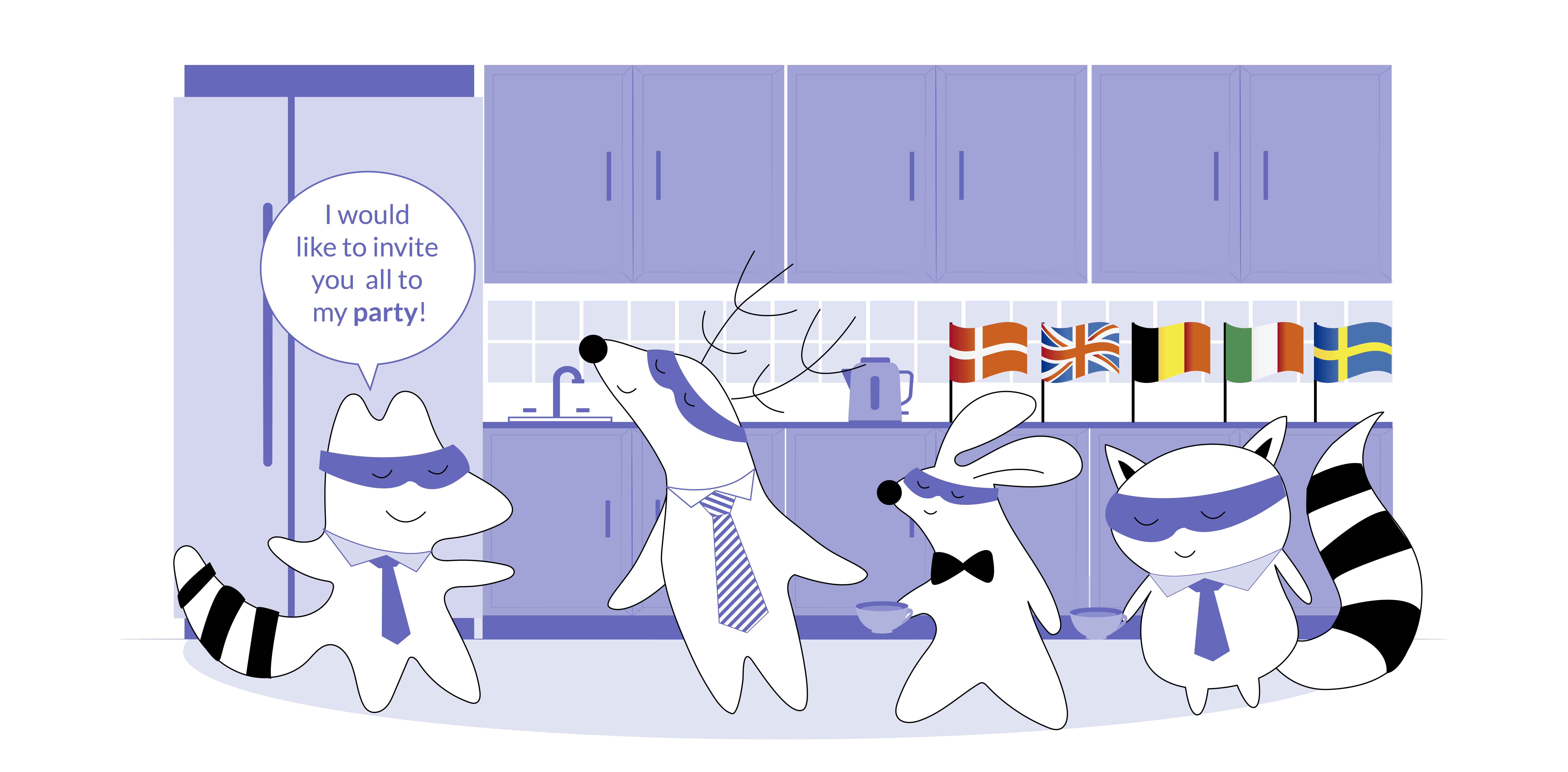
Are you ready to level up your English skills in the most entertaining way possible? Look no further than the big screen! That's right, we're talking about learning English with movies. Gone are the days of boring textbooks and monotonous language drills - with entertaining, exciting films, you'll be laughing, crying, and cheering your way to English fluency.
Grab some popcorn, settle in, and explore the best way to learn English through the magic of cinema.
Learn English with Langster
Vocabulary Expansion
Watching movies can introduce you to new words and phrases, helping to build your vocabulary. It's a lot easier to learn English words when watching something that entertains you, like horror movies or Harry Potter, instead of memorizing a long list of words.
Listening Skills
English movies also offer an opportunity to practice listening comprehension skills by exposing you to a variety of accents, intonations (There are almost 160 different accents to listen out for!), and real-life speaking styles.
For instance, by watching a classic film like Braveheart, you'll be exposed to the Scottish accent and understand how they pronounce certain words. Then, you can repeat them and improve your pronunciation.
Pronunciation
By listening to and repeating dialogue from movies, you can improve your pronunciation and accent. While this doesn't sound like a lot of fun, we promise you - it is!
We'll dive deep into strategies to improve your English pronunciation when you watch movies below.
Grammar
There's a better way to learn grammar than by memorizing boring rules or translating from your native language! Watching an interesting movie can help you understand how grammar rules are used in real-life situations.
By seeing how native speakers conjugate verbs, for example, you'll get a lot of context, making it easier to remember the rules and advance your English skills.
Cultural Knowledge
The best way to learn about English-speaking cultures is to immerse yourself in them. But sometimes, people live too far away from English-speaking countries, and this becomes impossible.
This is when movies come to the rescue, as they can expose you to the culture and customs of your target language, helping you broaden your understanding of the language. If you're looking for a funny movie that teaches you culture, then “Love Actually" (2003) might be a great choice.

This romantic comedy takes place in the weeks leading up to Christmas in London and tells the interconnected stories of several characters and their love lives. The movie focuses on different aspects of British culture, such as holiday traditions, the importance of family, and the role of love in people's lives.
Idiomatic Expressions & Colloquialisms
Last but not least, movies are a great resource for learning idiomatic expressions and colloquialisms, which can be difficult to learn from textbooks.
A great example of a movie that can help you learn colloquialisms in English is Pulp Fiction (1994), a crime drama by Quentin Tarantino that tells several intersecting stories and is known for its witty and fast-paced dialogue.
The characters in "Pulp Fiction" speak in a variety of regional dialects and slang, including idioms and colloquialisms that might not be familiar to non-native speakers. Watching the film with subtitles or a script can help you identify and learn these expressions and start incorporating them into everyday conversation.
Best Strategies to Learn English With Movies
All in all, movies not only provide you with an opportunity to listen to native English speakers, but they also offer a chance to learn new vocabulary, idioms, and colloquialisms in a natural and engaging way.
However, simply watching films without a structured approach may not yield the best results. Below, we will explore some of the best strategies to learn English through films. Whether you are a beginner or an advanced learner, these strategies can help you make the most of your movie-watching experience and take your English skills to the next level.
Choose Movies With Closed Captions
One of the main elements of movies are dialogues, which you can use to learn new words and phrases. Even if your English level is not advanced yet, you can make use of closed captions (essentially, English subtitles) to better understand what the characters are saying.
Additionally, pausing the movie and looking up any new words in a dictionary can be a valuable learning technique.
Not only does this help you to understand the specific word in question, but it also allows you to learn more about its usage, synonyms, and related words. You can also make a note of the word and try to use it in your own sentences later on, which reinforces your learning.
Repeat After the Characters
Repeating the dialogue out loud is an excellent way to improve your pronunciation and speaking skills while watching English movies. It helps you practice the rhythm, intonation, and accent of spoken English, which is essential for effective communication. By listening to the dialogue and then repeating it, you can develop your ability to speak English fluently and confidently.
One good movie that can be helpful for this technique is "The King's Speech." This movie tells the story of King George VI of England, who struggled with a speech impediment and worked with a speech therapist to improve his speaking skills.

Another great movie is Forrest Gump (1994), which is well-known for its slow, southern accent, which can be challenging for non-native English speakers to understand at first, but it's great to gain exposure to different types of accents.
Focus on One Scene at a Time
Focusing on one scene from a movie and watching it multiple times is another effective way to improve your English language skills. By doing so, you can pay close attention to the dialogue, pick up on new vocabulary, and gain a better understanding of how native English speakers use expressions and idioms without feeling overwhelmed.
One great scene to consider is the "To Be or Not to Be" soliloquy from the movie "Hamlet," directed by Kenneth Branagh. This scene features a lengthy monologue delivered by the character Hamlet as he contemplates life, death, and the meaning of existence.
The language in this scene is complex and poetic, making it a challenging but rewarding scene to study for English learners. By watching this scene multiple times, you can improve your understanding of the Shakespearean language and learn new vocabulary and expressions related to life and death.
Alternatively, you could choose a scene from a more modern movie that features an everyday conversation between characters. For example, the opening scene from the movie "The Social Network," where Mark Zuckerberg and the young girl Erica Albright have a conversation about social status and academic achievements.
Take Down Notes
Taking notes of new words, phrases or expressions while watching a movie is an effective way to expand your vocabulary. By doing this, you can create a personalized list of new vocabulary that is relevant to your interests and level of proficiency.
As you watch the movie, make sure to have a notebook or a digital note-taking app handy. Whenever you come across a new word, phrase, or expression that you don't know, write it down in your notes.
It's important to write down the definition of the word, as well as an example sentence of how it was used in the movie. After you finish watching the movie, review your notes and try to use the new words and phrases in your own sentences.

You can even try to use them in a conversation with a native English speaker or in writing exercises. This will help you consolidate your learning and reinforce the new vocabulary in your memory.
Another helpful tip is to organize your notes into categories, such as nouns, verbs, adjectives, and adverbs. Otherwise, it may be quite difficult to review and understand your notes when the time comes to practice this new vocabulary.
Watch Films With a Native Speaker
If you have the opportunity to watch your favorite English movies with a native speaker, even better! This will provide you with an opportunity to practice your listening, speaking, and comprehension skills in a natural and authentic context.
Additionally, having a native speaker present can help you to receive immediate feedback about your pronunciation and grammar when commenting on the film.
Here are some tips for watching movies with a native speaker:
- Choose a movie that both you and the native speaker are interested in. This will help to keep the conversation flowing and ensure that you are both engaged.
- Watch the movie with closed captions. This will help you follow the dialogue and understand any unfamiliar words or expressions without having to ask your partner for clarification all the time.
- Pause the movie from time to time to discuss any questions you may have about the dialogue or plot.
- Ask your friend to provide feedback on your pronunciation and grammar. You can practice repeating phrases or sentences from the movie, and the native speaker can offer suggestions for improvement.
The Bottom Line

In conclusion, learning English through movies is an entertaining and effective way to improve your language skills. It can expand your vocabulary, improve your listening skills, pronunciation, and grammar.
Furthermore, movies provide an excellent opportunity to immerse yourself in the culture of English-speaking countries and learn idiomatic expressions and colloquialisms in the easiest way. By following some simple strategies, such as using close captions and supporting your language journey with a language app like Langster, soon you’ll see your English skills skyrocket!









